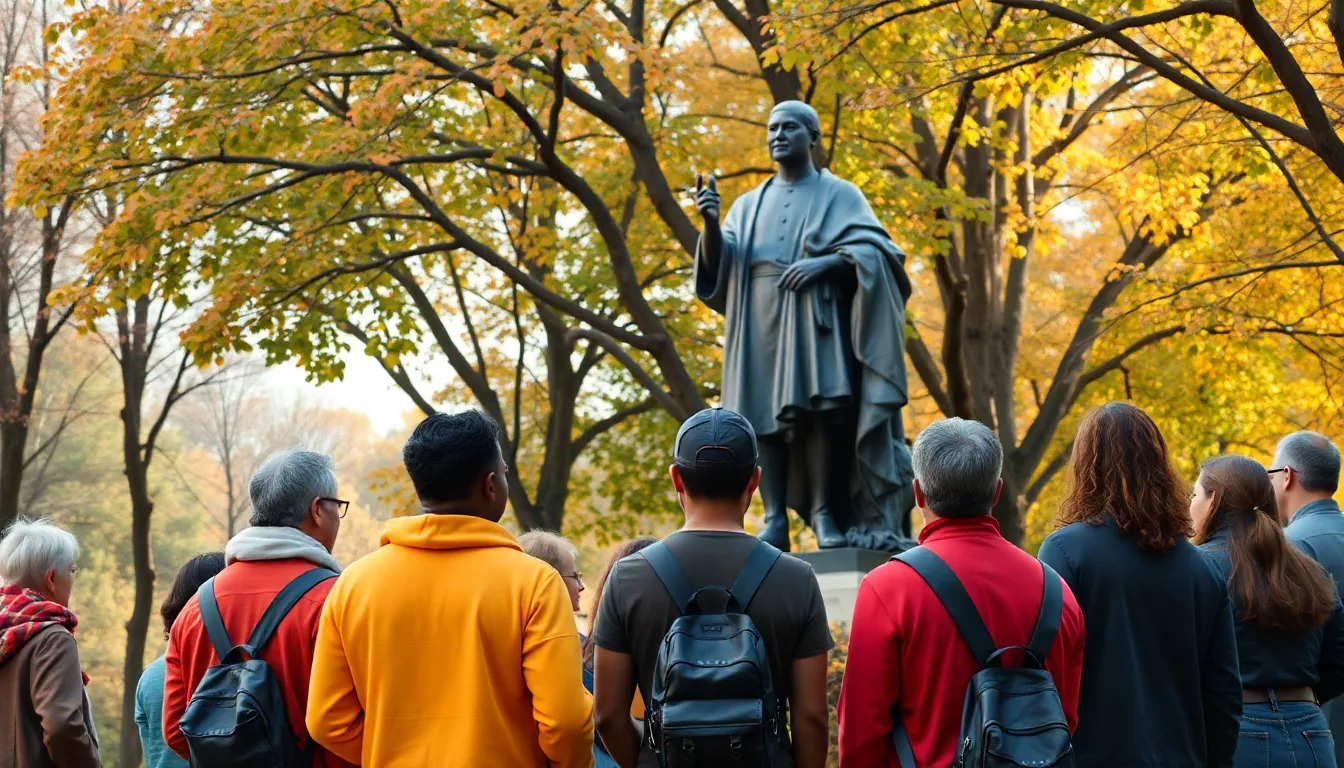As Columbus Day approaches, many families wonder about the status of schools on this federal holiday. Traditionally observed on the second Monday in October, Columbus Day stirs up discussions about its significance and how it impacts educational institutions. With varying policies across states and districts, it’s essential for parents and students to stay informed.
Some schools choose to close their doors in observance of the holiday, while others remain open for regular classes. This discrepancy can lead to confusion, especially for families planning activities or childcare. Understanding the local school policy on Columbus Day can help in making informed decisions and ensuring a smooth day for everyone involved.
Table of Contents
ToggleOverview of Columbus Day
Columbus Day, observed on the second Monday in October, commemorates Christopher Columbus’s arrival in the Americas in 1492. This federal holiday primarily aims to recognize Italian-American heritage and the contributions of explorers.
Statewide observance of Columbus Day varies, influencing school schedules significantly. While some states mandate closure, others leave the decision to individual school districts. For instance, in California, many schools remain open, whereas in Massachusetts, schools typically close for the holiday.
This inconsistency can complicate planning for families, requiring awareness of local school policies to ensure arrangements align with school operations. Knowledge of specific district practices allows families to navigate Columbus Day effectively.
Historical Significance of Columbus Day

Columbus Day commemorates Christopher Columbus’s arrival in the Americas on October 12, 1492. The holiday serves multiple purposes, primarily recognizing Italian-American heritage while acknowledging the broader legacy of exploration. Columbus’s voyages marked a significant turning point in world history, opening the Americas to European exploration and colonization.
Historical narratives around Columbus Day have evolved, reflecting changing perspectives on colonization’s impact. Many view Columbus as a symbol of discovery and adventure, while others emphasize the negative consequences for Indigenous populations. As a result, some states and communities have shifted their observance away from Columbus Day to alternative holidays such as Indigenous Peoples’ Day.
Current practices concerning Columbus Day vary widely across the United States. Federal law designates it as a national holiday, yet individual states, school districts, and communities determine local observances. Understanding the historical context of Columbus Day aids families in navigating school schedules and planning for the holiday.
School Policies on Columbus Day
Policies regarding Columbus Day in schools demonstrate significant variability across the United States. While some districts observe the holiday, others operate on a regular schedule, leading to diverse experiences for families.
Variations by State
School policies on Columbus Day change based on state legislation and local district decisions. In California, many school districts remain open, allowing for regular classes. Conversely, in Massachusetts, schools typically close, recognizing the holiday and its implications. Other states, such as New York and New Jersey, may follow a similar pattern, with many districts opting to close. Research indicates that approximately 30% of U.S. schools observe Columbus Day as a holiday, leading to a patchwork of schedules throughout the nation.
Impact on School Calendars
The presence or absence of Columbus Day in school calendars significantly influences educational planning. Schools that close for the holiday often schedule makeup days, shifting timelines for academic activities. In contrast, schools that remain open continue their regular curriculum, impacting sports schedules and extracurricular activities. Local school district websites provide crucial information about closures or schedule adjustments, ensuring families stay informed and can plan accordingly. For instance, parents in districts that observe Indigenous Peoples’ Day might find school closed on that date instead of Columbus Day, further altering traditional schedules.
Reasons for Schools Being Closed
Several reasons contribute to schools closing on Columbus Day.
- Federal Holiday: Columbus Day is recognized as a federal holiday. Federal law designates it for observance, prompting many public institutions, including schools, to close.
- Local Policies: School districts establish their own holiday schedules. Variations across states and communities lead to different decisions regarding Columbus Day. For instance, districts in New York may close, while those in Florida might remain open.
- Historical Significance: Acknowledgment of historical events influences school calendars. Some regions highlight Columbus Day’s divisive history, opting for alternatives like Indigenous Peoples’ Day to promote awareness and inclusivity.
- Community Influence: Local community values play a role. Areas with significant Italian-American populations may maintain Columbus Day as a celebrated holiday. In contrast, communities focusing on Indigenous histories may prefer to observe days honoring those narratives instead.
- Educational Priorities: Some school districts aim to integrate social studies into their curricula. Schools that focus on these themes may choose to close for Columbus Day to provide students with an opportunity to engage in discussions about the historical implications and civics education.
- Parent and Student Considerations: Schools often consider parent feedback regarding holiday observances. Many families plan vacations or activities around school closures, impacting school district decisions about whether to close on Columbus Day.
Understanding these factors aids families in navigating school schedules and making informed decisions for the holiday.
Reasons for Schools Remaining Open
Schools often remain open on Columbus Day due to several key factors.
- Educational Priorities: Schools may prioritize maintaining the academic calendar and ensuring regular class instruction. Teachers conduct lessons aligned with state standards, ensuring students meet educational requirements.
- Community Expectations: Some communities favor educational continuity over holiday observance. Parents and students may prefer regular school schedules for convenience, especially when planning extracurricular activities or childcare.
- Cultural Sensitivity: As discussions around Columbus Day evolve, schools may opt to focus on curriculum that promotes cultural understanding. Remaining open allows for lessons on the impacts of exploration and the importance of recognizing diverse historical perspectives.
- Strategic Scheduling: Many school districts account for potential weather-related closures by keeping schools open on Columbus Day. This approach helps avoid extending the academic year or needing additional makeup days in the event of unplanned closures later.
- Local Governance: Local school boards determine policies independent of federal mandates. These boards weigh community feedback and educational goals when deciding whether to remain open or close for holidays.
- Diverse Observances: In areas where Columbus Day coexists with Indigenous Peoples’ Day, schools may remain open to provide educational programming that includes multiple perspectives on historical events, fostering an inclusive learning environment.
Understanding these factors clarifies why some schools choose to stay open on Columbus Day, reflecting a combination of educational commitment, community values, and diverse perspectives.
Navigating school schedules on Columbus Day can be challenging for families. With varying policies across states and districts it’s essential to stay informed about local practices. Understanding whether schools are open or closed not only aids in planning but also highlights the ongoing dialogue surrounding the holiday’s significance.
As communities continue to evolve in their recognition of historical events the decisions made by schools reflect a blend of educational priorities and cultural sensitivity. Families should check their local school district’s guidelines to ensure a smooth experience on this federal holiday.









